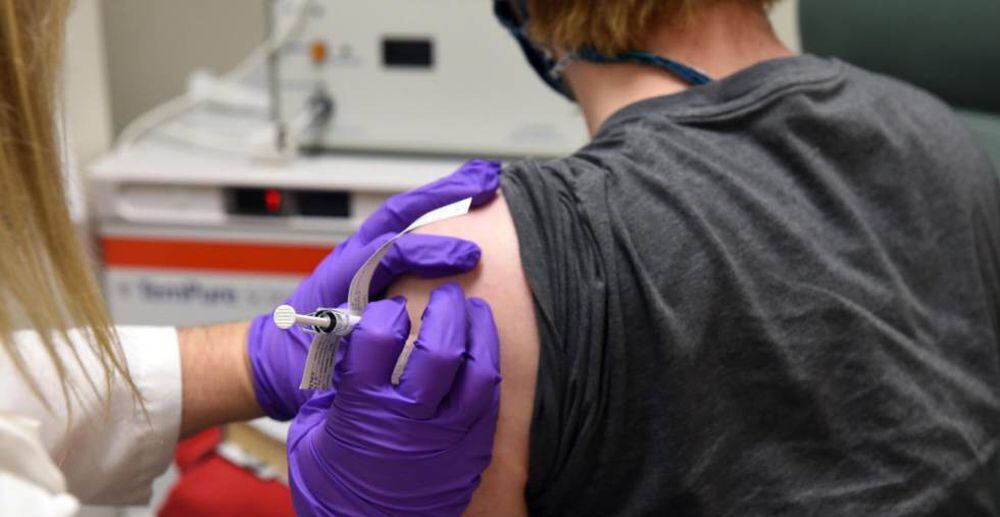The path to vaccination against the coronavirus is promising, but uncertain: no drug has yet proven efficacy and safety in large numbers of people (known as phase 3), but several are close to achieving it.
The European Union is in very advanced talks with five companies, after announcing on Wednesday a preliminary agreement with the consortium formed by BioNTech and Pfizer to acquire at least 200 million doses when it is ready.
But it has only closed the contract with one: AstraZeneca, which this Wednesday has temporarily suspended its tests due to an adverse effect that it will have to study.
“It was part of the planned script.
Detecting these types of situations is part of a well-designed clinical trial that guarantees that the final medicine will be safe, ”explains César Hernández, head of the department of medicines for human use at the Spanish Agency for Medicines and Health Products (AEMPS).
Precisely for this reason agreements are finalized with several companies, because it is not known which one will get the vaccine, or which one will do it first.
In total, the preliminary agreements of the European Commission - which will distribute doses proportionally to the population of its partners - include the purchase of 1,205 million doses of these six experimental vaccines against covid: 300 million from the candidate from Oxford and AstraZeneca ;
another 300 million from that developed by the French multinational Sanofi and the British GSK;
225 million of the prototype of the German biotechnology company Curevac;
200 million from the option of the American company Johnson & Johnson, the 200 already mentioned from BioNTech and Pfizer and 80 million doses of the also American Moderna.
"Predictably, all of them will reach the signing of the agreement, as happened with Oxford, it is a similar negotiation with all of them, in which an advance purchase of a volume of doses and a delivery plan according to manufacturing capacities is established. of the companies, ”Hernández explains.
Being in the midst of trials, it is impossible to unequivocally close dates.
According to this head of AEMPS, the first doses of all of them are scheduled between the end of this year and the middle of the next.
AstraZeneca estimated that theirs would be ready by December 2020, but the stop in rehearsals may delay this date.
"It can be hours, days or weeks until an independent scientific committee can find out what the adverse effect was due to," Hernández adds.
Of the 179 experimental vaccines against covid -34 of them with human trials-, eight prototypes are already in phase 3. The most advanced was precisely that of the University of Oxford, with promising results in a first trial with a thousand people published in July.
British researchers are carrying out the latest tests with 50,000 people in the UK, Brazil, South Africa and the US At this same stage are Moderna, BioNTech and Pfizer, Chinese Fosun Pharma and Cansino Biologics and a Russian-made.
The mission of the AEMPS is to provide Public Health with a portfolio of vaccines that have demonstrated quality, safety and efficacy.
Depending on the results of the trials, protocols will be established to vaccinate the population.
Although Fernando Simón, director of the Center for the Coordination of Health Alerts and Emergencies, said on Monday that the first would be health and vulnerable population, it all depends on the characteristics of the final drug (or drugs).
It could be the case that in tests with thousands of subjects (in phase 3) adverse effects were detected in people with certain pathologies or of specific ages that would prevent them from being vaccinated.
The Ministry of Health has reached an agreement this Wednesday with the autonomous communities, within the Interterritorial Health Council to develop this vaccination strategy.
It will be prepared jointly with the opinion of experts in bioethics and scientific societies.
It is the regional governments that will have to be in charge of having all the materials, equipment and human resources available for the administration of immunizations.
In addition, as the minister announced last Friday, a registry will be created with the vaccinated people to be able to follow up.
Research on drugs doesn't really end when they are on the market.
What is known as phase 4 consists precisely in reporting all cases and adverse effects once they are applied to the population.
This allows you to fine-tune the process to detect very rare consequences or in very specific groups that may go unnoticed in the tests.
Information about the coronavirus
- Here you can follow the last hour on the evolution of the pandemic
- This is how the coronavirus curve evolves in Spain and in each autonomy
- Download the tracking application for Spain
- Search engine: The new normal by municipalities
- Guide to action against the disease

